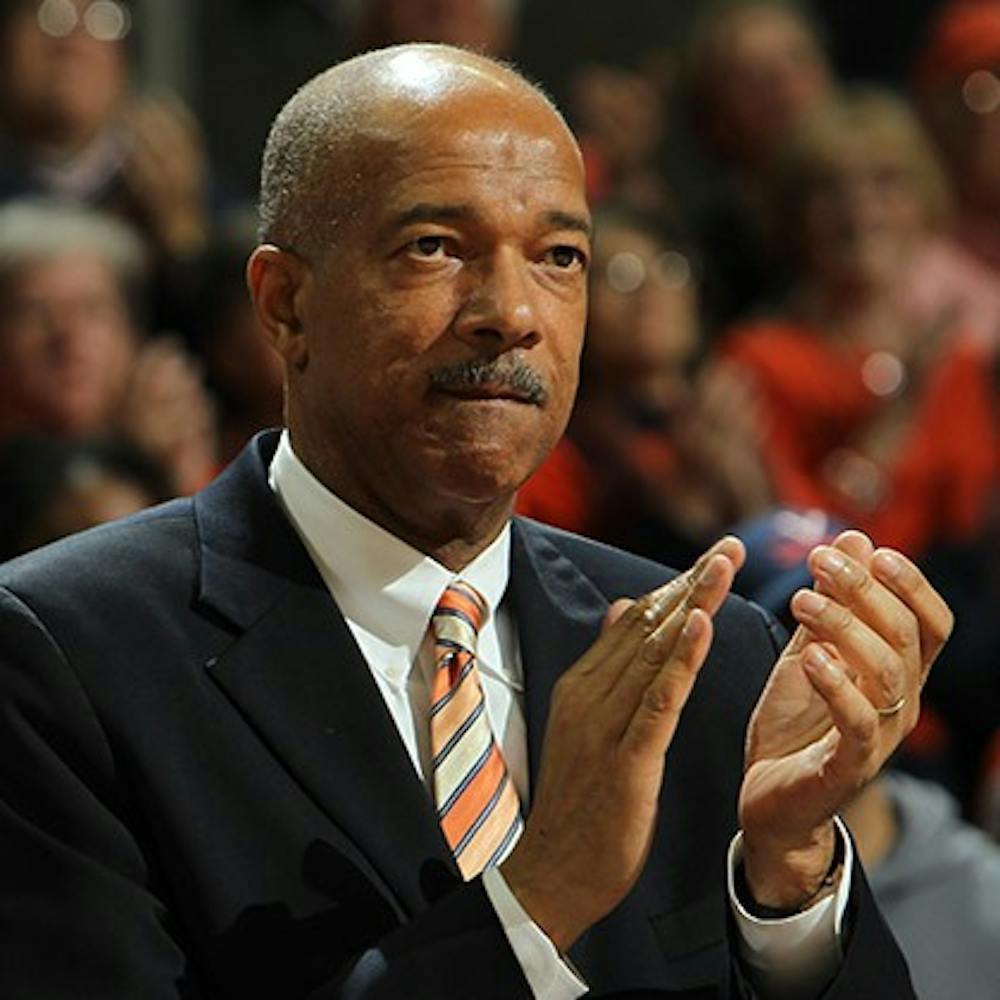Over the past few years, Virginia sports have been nothing short of phenomenal across the board. Since the beginning of the 2014-15 calendar year, the Cavaliers boast NCAA championships in men’s soccer, baseball, a runner-up finish in women’s soccer, two national championships in men’s tennis and numerous other accolades — including ACC Championships from women’s swimming and diving and rowing.
This success can be quantified by the NACDA Learfield Directors' Cup Standings. The Directors' Cup is given annually to the school with the most success in collegiate athletics, determined via a scoring system that weights each sport equally. Virginia has recently performed well in the Directors' Cup, coming in fourth in 2014, sixth in 2015 and eighth in 2016.
If major-sport success seems like a better indicator of the quality of the program, Virginia’s rankings still hold up. In 2015, Virginia won the men’s Capital One Cup, which weights higher-profile sports three times as much as lower-profile ones.
However, despite plenty of successful seasons, it seems as if Virginia sports are faltering a bit this season. In the current Directors' Cup rankings, Virginia ranks No. 20. While the Cavaliers are likely to get a bump from spring results, they were No. 11 at this time last year. The Cavaliers have yet to even receive a point in the Men’s Capital One Cup, putting them behind 80 other universities.
It may seem nitpicky to complain about ranking among the top 20 schools in the nation while team successes continue to roll in, but the trend is a little troubling.
This general pattern is reflected in individual programs as well. While they’re still performing, there is reason for some concern.
Baseball, for example, no longer boasts the influx of elite talent it has in recent years. While the program’s recruiting class was ranked sixth by Perfect Game in 2014 and eighth in 2015, it was only 33rd in 2016 and 26th so far for 2017. Although some of this can be attributed to losing talent in the draft, bringing in fewer stars to the diamond will increase the challenge of making another deep run in the tournament. No one should doubt Coach Brian O’Connor’s ability — he just may have some trouble living up to the lofty standards set by his own teams.
Men’s basketball Coach Tony Bennett faces a similar dilemma in trying to keep a program he made elite performing at the highest level. Bennett has three open scholarships to fill on a team that failed to perform as well as Bennett’s last few teams, both in the tournament and the regular season.
Other programs across Grounds face similar challenges with maintaining success at the highest level. For example, men’s soccer has failed to reach the quarterfinals of the NCAA tournament the past two seasons, and men’s tennis — arguably the most consistently successful Virginia team — will have to replace Coach Brian Boland.
None of this is uncommon for elite programs — it is incredibly difficult to achieve at such a high level, and regression to the mean is to be expected. Dom Starsia’s lacrosse teams show that perfectly. This past offseason, Virginia and Starsia parted ways after the men’s lacrosse team had fallen off somewhat from its prior heights under his tenure.
Panic isn’t necessary for Cavaliers fans — even in this minor down period, Virginia sports are still quite good. They continue to outperform their rivals as well, as they rank fifth in the ACC in the Directors' Cup standings. Also, the Cavaliers have clinched at least a tie in the Commonwealth Clash with women’s lacrosse’s win over Virginia Tech Saturday.
The infrastructure that led to success is still in place, too. Virginia has state-of-the-art athletic facilities in John Paul Jones Arena, Snyder Tennis Courts and Klöckner Stadium, and Davenport Field is scheduled for massive upgrades. This is true from a human capital perspective as well, as Athletics Director Craig Littlepage and his assistant Jon Oliver are generally highly regarded.
All things considered, the state of the Virginia athletic department is strong. The Cavaliers have well-funded, elite programs in a number of men’s and women’s sports. While these sports may have fallen off from their own high standards, and the football team’s performance is still troubling, there is plenty of reason to be optimistic with regards to Virginia’s athletic landscape going forward.
Jake Blank is a Senior Associate Sports Editor for The Cavalier Daily. He can be reached at j.blank@cavalierdaily.com or on Twitter at @Jake_33.
Correction: The column previously misstated the name of the NACDA Learfield Directors' Cup.







